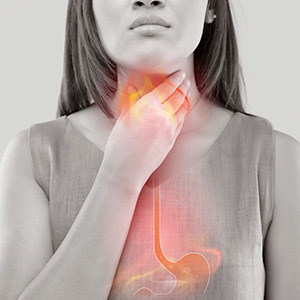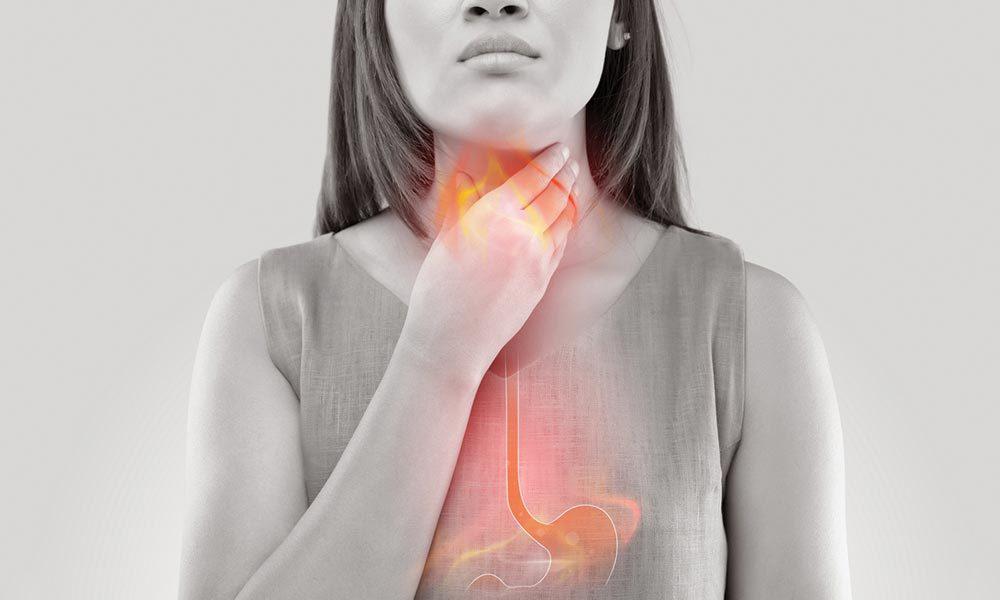
If you're living with Gastroesophageal Reflux Disease (GERD), you know how frustrating it can be to manage your symptoms and find the right treatment. GERD is characterized by a burning sensation in the chest or throat, acid reflux from the stomach, and other unpleasant symptoms that can interfere with daily life. Finding relief from GERD can be a challenge due to its complex triggers, but thankfully there are treatments available to help improve the quality of life for those suffering from this condition. In this blog post, we'll discuss some ways to manage your GERD symptoms and discover which treatment plan works best for you.
Identify the Symptoms of GERD
Gastroesophageal Reflux Disease (GERD) is a common condition that affects millions of people worldwide. The symptoms of GERD can vary from person to person but generally include heartburn, chest pain, and difficulty swallowing. These symptoms are caused by the backflow of stomach acid into the esophagus, which irritates and inflames the lining of the esophagus. If left untreated, GERD can lead to more serious complications, such as esophageal cancer. Fortunately, there are many treatments available to help manage GERD symptoms. Lifestyle changes such as avoiding trigger foods, losing weight, and quitting smoking can make a significant impact. Additionally, over-the-counter medications such as antacids and proton pump inhibitors can provide relief. If you think you may be experiencing symptoms of GERD, talk to your doctor to determine the best course of treatment for you.
Learn About Different Treatments for GERD
GERD, or Gastroesophageal Reflux Disease, is a common digestive condition that affects millions of people worldwide. Common GERD symptoms include heartburn, acid reflux, and regurgitation. Luckily, there are a variety of treatments available to help relieve GERD symptoms and improve overall quality of life. Lifestyle changes like maintaining a healthy weight, avoiding trigger foods, and sleeping with your head elevated can be effective in managing GERD. Medications like antacids, H2 blockers, and proton pump inhibitors can also be prescribed by a medical professional. In more severe cases, surgery may be necessary. It's important to speak with a healthcare provider to determine the best treatment plan for your individual needs. Understanding your treatment options and following your healthcare provider's recommended plan can bring relief and prevent complications associated with GERD.
Understand Foods, Drinks, and Lifestyle Habits to Avoid GERD
For those who suffer from gastroesophageal reflux disease (GERD), understanding which foods and drinks to avoid can be crucial in managing symptoms. GERD is a condition where stomach acid flows back up into the esophagus, causing a burning sensation and discomfort. Some lifestyle habits can also exacerbate symptoms, such as smoking and eating large meals too close to bedtime. By avoiding trigger foods, such as spicy or acidic foods and alcohol, and implementing recommended treatments, such as medication and dietary changes, GERD sufferers can find relief and lead a more comfortable lifestyle. With the right knowledge and management strategies in place, GERD symptoms can be significantly reduced.
Consider Medications for Treating Your GERD Symptoms
GERD, or gastroesophageal reflux disease, can be a frustrating and uncomfortable condition to deal with. Symptoms such as heartburn, regurgitation, and difficulty swallowing can greatly impact your quality of life. Fortunately, there are a variety of medications available to help treat these symptoms. From proton pump inhibitors to H2 blockers, it's important to understand the different types of medications and how they work in order to find the best treatment option for you. Working closely with your healthcare provider can help you effectively manage your GERD symptoms and improve your overall comfort. Don't suffer in silence – explore your GERD treatment options with your healthcare team today.
Determining When You Should See a Doctor for Your GERD
Gastroesophageal reflux disease, or GERD, is a condition that affects millions of people around the world. It is caused by the backflow of stomach acid into the esophagus, resulting in uncomfortable symptoms such as heartburn, chest pain, and difficulty swallowing. While milder cases of GERD can often be managed with dietary and lifestyle changes such as eating smaller meals and avoiding trigger foods, it is important to know when you should see a doctor for your symptoms. If you experience symptoms that persist despite these changes, or if you find yourself relying on over-the-counter antacids or medications to manage your GERD, it's a good idea to speak to your doctor. They can recommend treatments such as prescription-strength acid blockers or even surgery, if necessary, to help keep your symptoms under control. Don't hesitate to reach out for help if you need it, as putting off treatment can lead to further complications down the road.
Strategies to Manage Your GERD and Help Reduce Symptoms Long-term
GERD, or gastroesophageal reflux disease, is a digestive disorder that affects millions of people worldwide. Its symptoms, including heartburn, regurgitation, and chest pain, can be debilitating and impact daily activities. However, there are strategies available to help individuals manage their GERD in the long term. By incorporating lifestyle changes such as avoiding trigger foods and eating smaller, more frequent meals, and taking medication to reduce acid reflux, individuals can experience relief from symptoms and improve their quality of life. Talk to your healthcare provider to find the best treatments for your GERD symptoms, so you can feel better and live your life to the fullest.

